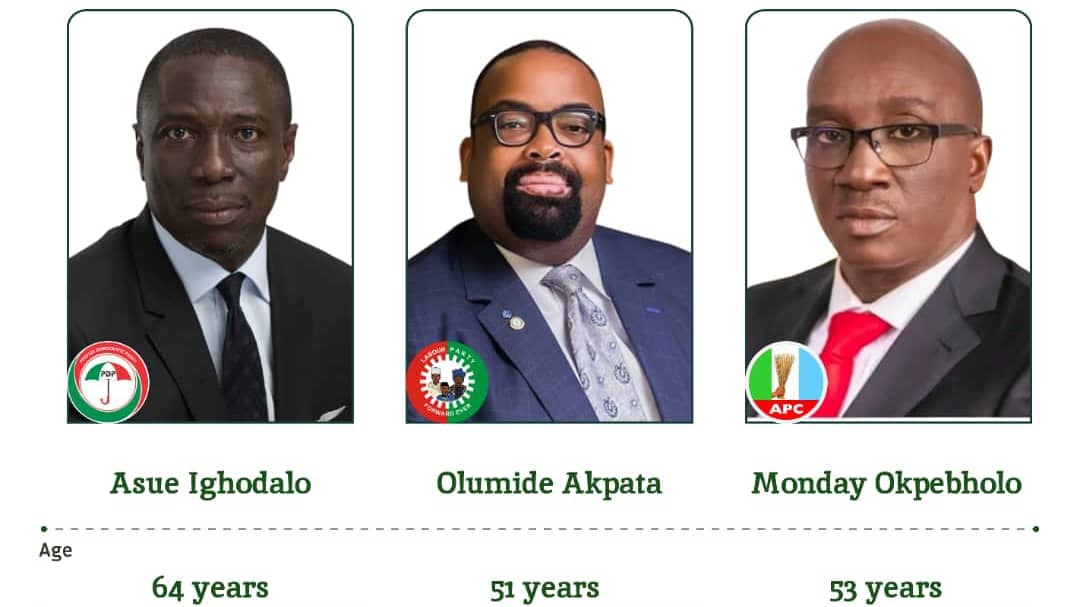Yiaga Africa, a prominent civil society organization, has expressed deep disappointment with the conduct of the 2024 Edo State governorship election, stating that it failed to meet the standards of electoral integrity.
The Independent National Electoral Commission (INEC) declared APC candidate Monday Okpebholo the winner of the election, with 291,667 votes, defeating PDP’s Asue Ighodalo, who garnered 247,274 votes, and Labour Party’s Olumide Akpata, who finished third with 22,763 votes.
In a joint statement released by Yiaga Africa’s Chairperson of the Edo Election Mission, Dr. Aisha Abdullahi, and Executive Director, Samson Itodo, the group highlighted several flaws in the electoral process, particularly during the collation of results.
The organization noted that while key processes such as accreditation, voting, and counting at polling units largely adhered to INEC guidelines, the results collation was compromised due to the actions of biased INEC officials in collaboration with other actors.
“Manipulation during the collation process severely undermines the overall integrity of the election,” Yiaga Africa stated, adding that these irregularities tarnished what could have been a transparent election process.
The organization, known for deploying its Process and Results Verification for Transparency (PRVT) methodology, based its conclusions on official results from a representative sample of polling units.
READ ALSO: Results Collation: Yiaga Africa tasks INEC on transparency
Yiaga Africa explained that while accreditation and voting were largely smooth, with BVAS machines functioning optimally and polling unit results being uploaded to INEC’s IReV platform in a timely manner, the integrity of the collation process at the ward and local government levels was compromised. The affected areas included Ikpoba/Okha, Etsako West, Egor, and Oredo LGAs.
According to the report, INEC officials, along with party agents, observers, and even voters, faced intimidation and disruptions during the collation process. These incidents led to the manipulation of results, directly contradicting the provisions of the Electoral Act and INEC guidelines.
Yiaga Africa emphasized that these actions seriously undermined the credibility of the election.
“While the voting process was generally orderly, the failure of the collation process casts a long shadow over the entire election,” the group added, warning that such incidents erode public trust in the electoral system.
Yiaga Africa’s criticism aligns with growing concerns from other stakeholders who have raised alarms about widespread irregularities during the election. The organization called on INEC to address these lapses urgently, particularly as the country approaches the Ondo governorship election and the 2027 general elections.
Despite the significant issues raised, Yiaga Africa acknowledged that some aspects of the election were well-conducted, including the timely uploading of results from polling units, which allowed for public access to the voting outcomes.
However, the group stressed that a fair collation process is essential for ensuring the credibility of election results.
The 2024 Edo governorship election has since been marred by protests, especially from PDP supporters, who argue that the results do not reflect the will of the people. Many are calling for a review of the election process to prevent a repeat of the flaws witnessed in Edo.

 Health1 week ago
Health1 week ago
 Latest1 day ago
Latest1 day ago
 Trends2 days ago
Trends2 days ago
 News1 week ago
News1 week ago
 Crime1 week ago
Crime1 week ago
 Energy6 days ago
Energy6 days ago
 Latest1 week ago
Latest1 week ago
 Aviation1 week ago
Aviation1 week ago

